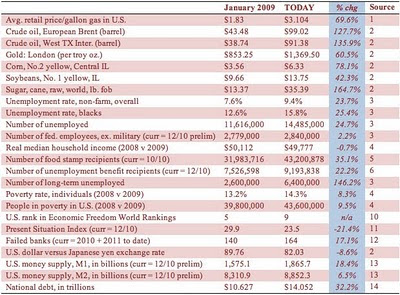
An Amazing Journey! LIFE!
At the miraculous moment of fertilization – when the egg of a woman and the sperm of a man unite, a new human life begins. From this moment on, it will take approximately nine months for the baby to develop and be ready to be born. Watch "85 Days," our TV commercial about your baby's development.
Babies come into this world one of three ways – early (premature), on time (born at the expected time), or late (after the expected due date). All babies, regardless of when they arrive, must go through the same developmental stages – usually a nine-month cycle. Let’s examine what happens before birth.
For the sake of clarity, please note that fertilization is placed at the beginning of Week 1. If you had intercourse multiple times since the end of your last menstrual period, it may be difficult to determine exactly the date of the baby’s conception and stage of fetal development.
Month One
Fertilization - the joining of the father's sperm and the mother's egg - this is when life begins. Fertilization can occur within minutes of intercourse or within two to three days afterwards. When fertilization occurs a new, unique human individual begins the journey of development. At the earliest stage, the new person is referred to as a zygote and is no larger than a single grain of sand. Cell division begins mere moments after fertilization.
Amazing Fact: At fertilization, every bit of genetic information necessary for the child's development is present. The "program" for everything is there: hair and eye color, skin tone, height - even likely giftedness as a pianist, vocalist or computer programmer.
A function called implantation happens from five to nine days after fertilization. Implantation occurs when the new human nestles him or herself in the wall of the uterus (or womb) and begins to draw nutrition. Once he/she has implanted, your baby is called a blastocyst and is about 0.1 - 0.2 mm in diameter.
This week your body will experience a hormone reaction to the presence of the developing baby. The result is that you stop menstruating. In other words, you miss your normal period.
Between weeks three and four (18 to 25 days after fertilization) the developing baby's heart begins to beat. Arm and leg buds form. The face – eyes, ears, nose and mouth - begin to take form.
Month Two
Your baby has only been developing for five weeks and is now 10,000 times larger than he/she was at fertilization. Your baby now is only about one inch long and weighs no more than one whole peanut. The lining of the placenta begins to develop but does not take over the production of hormones until about week 12. Brain waves are detected.
Amazing Fact: It's a good thing this blazingly fast growth rate slows down after the second month, otherwise the baby's birth weight would exceed 10 tons!
Your baby’s heart is bulging from the body and blood circulation is well established. Early evidence of the liver, pancreas, lungs and stomach can be seen. When you see your baby through ultrasound at week six, you'd be amazed by how much he or she has already developed.
Genitals are present but you can't distinguish boys from girls at this point. The pumping action of your baby's heart is about 20% of your own heart's capacity.
Amazing Fact: Your baby will actually go through three sets of kidneys during his or her development. By week seven, your baby is already on the second set!
By this time, the end of month two, your baby receives a new technical name to describe his/her development: fetus, a Latin word which means "young one." All organs are present - and most are functioning - although some need more time to develop. The irises of the eyes develop, fingernails are visible and your baby can curl his/her fingers around an object. He or she also hiccups, has taste buds on the tongue and tooth buds in the gums.
Amazing Fact: If your health provider uses a "Doppler," you may be able to hear your baby's heartbeat during your week 10 visit. It will sound very fast. Your risk of miscarriage is greatly reduced after you hear this sound. Just click either link to listen!
baby's heartbeat.mp3
baby's heartbeat.wav
The baby’s mother and father can also see their baby in the womb through 3D/4D ultrasound imaging. Most doctors use ultrasound to trace the baby’s development throughout pregnancy.
Month Three
Your baby can smile, make funny faces. She/he can practice “breathing” the amniotic fluid in/out of the lungs, all 20 teeth are formed and waiting to develop. Your baby is now approximately one ounce in weight, as is the placenta. The pancreas has now started to secrete insulin. This is also the time of peak movement for the baby. The movement can not be felt by the mother but the baby rarely pauses for more than five minutes at a time. He/she may change position as often as 20 times an hour even if the mother lies still. The baby also feels the mother’s motions at this time and rocks in the womb as the mother moves.
Amazing Fact: Amniotic fluid completely regenerates itself every three hours. While we know for sure that this fluid is partly made up of urine from the baby, science still has not discovered what makes up the other parts. As advanced as modern medicine is, some mysteries remain!
Amazing Fact: What was that noise? At 15 weeks, loud sounds may actually cause baby to startle. Some moms and dads find that quiet music played near mom's tummy will cause baby to relax and calm down.
Month Four
Your baby is now about eight inches tall from head to toe. Baby’s movements can now be felt by his/her mother and he/she can suck his/her thumb. The fingernails are now well-formed and often need to be trimmed at birth because they have grown so long. Baby is emptying his/her bladder every 40-45 minutes. The placenta is fully established by now. Another critical part of the baby’s growth is the umbilical cord. The umbilical cord is attached to the placenta, not the mother, and serves to provide baby with the needed nutrients for the rapid growth the baby is now experiencing. Fingerprints are now evident.
Month Five
Amazing Fact: "Why can't I sleep through the night?" Many moms find themselves asking this question. The simple answer is you have a son or daughter inside you who lives on a different sleep/wake cycle than you do. Some kids consistently wake mom at 3 a.m. every morning. Chances are, after baby is born, he or she will want to be active about this same time!
Baby’s weight will increase to approximately 15 ounces by the end of the fifth month. Hearing is very acute and activity continues to increase as the baby swims around in the amniotic fluid. The baby’s body shifts to a head-down position in preparation for birth in a few months. Eyebrows have developed. Lanugo, (fine hair) begins to appear on the baby’s body. Sometimes this lanugo remains on the body after birth. Also, a creamy white substance (named vernix) clings to the baby’s fine hair and in creases of the skin. It is believed that this “skin cream” protects the baby during the remaining weeks of pregnancy. This substance is sometimes seen after birth.
Month Six
By now your baby has gained another pound. His/her hand coordination has increased and the baby can now move the thumb in opposition to the fingers. Eyes are now open though the baby is still in the darkness in the womb. Little deposits of fat, which retain heat, begin to form. The uterus allows some light to be seen so the baby begins to distinguish between lightness and darkness.
Month Seven
Baby’s skin is wrinkled from so much time floating in water. The skin will stay this way until a few weeks after your child’s birth. Your baby’s eyelashes are developing and fat continues to be deposited beneath the skin. If you have a baby boy, his testes will probably begin descending. Now into his/her seventh month of development, a baby born at this time has a good chance of survival with the help of medical technology. Your baby also is beginning to regulate his/her body temperature. The baby’s temperature will always be warmer than the mother’s.
If you are having Braxton Hicks Contractions, they are a sign that your body is getting ready for labor. The baby notices the contractions, but is not adversely affected by them.
Your baby now weighs two to four pounds.
What are Braxton Hicks contractions?
Named for J. Braxton Hicks, who first made note of them in 1872, Braxton Hicks contractions are an occasional (and unpredictable) tightening of the uterus during the first and second trimesters of a pregnancy. Usually these contractions are not painful and do not indicate that labor has begun. Third trimester Braxton Hicks contractions may increase in frequency and may cause the mother some degree of pain. These contractions may even occur with a regular rhythm (10 to 20 minutes apart) and are sometimes called false labor pains. The only way to be absolutely certain that the contractions are indeed false labor pains is for mom to be examined by her doctor.
Month Eight
Baby’s irises can now dilate and contract in response to light; weight is now about four to six pounds. Sleep and waking become more differentiated toward the end of the eighth month. Four distinctive behavioral states become recognizable and these will continue to be characteristic in the baby’s behavior in the weeks beyond birth. These are sleep, awake, actively awake and crying. Your baby's body is now producing a chemical (called a surfactant) which helps baby breathe after birth. The surfactant is coating the alveoli in the lungs. Baby weighs about four pounds (1.8 kilograms). Babies born after this week have fewer breathing problems at birth.
Amazing Fact: Baby has put on about two pounds of weight, mostly fat and muscle tissue, since last month. Measurements to 40 cms or 15.8 inches.
Month Nine
Baby weighs about five to seven pounds, and puts on about half a pound a week now. All organ systems are completing development for birth. Baby gains his/her “fat cheeks” during the ninth month. Mother’s antibodies pass through the placenta to provide baby with immunity from measles, chicken pox, whooping cough and other illnesses.
Amazing Fact: In the days and hours prior to your baby's birth the amniotic fluid is continually replaced, even in labor, at the rate of once every three hours.
Chances are good that your baby is one of the 90% who is head down and deeply snuggled into your pelvis. The immune system is still immature and the baby receives antibodies from the placenta and after birth will receive antibodies continually from mother’s breast milk. Most of the lanugo has fallen off the baby's body, although you may still find some hidden in spots, particularly in the creases, and around the shoulders or ears.
The average baby will be about 7.5 pounds (3.4 kilograms) and 20 inches long at birth. The placenta will weigh about one eighth the size of the baby and the umbilical cord will be about the same length as the baby. The baby will be judged, at birth and five minutes later, with an Apgar score.
What is an Apgar score?
Virginia Apgar, M.D., gets the credit for developing the APGAR score in 1953. She wanted to provide moms, dads and hospital staff with a uniform method of measuring the initial health of a newborn. The test looks at five different signs of health: heart rate, respiratory rate, reflex irritability, muscle tone and color.
Happy birthday, baby!
Reprinted with permission Wisconsin Right to Life



















